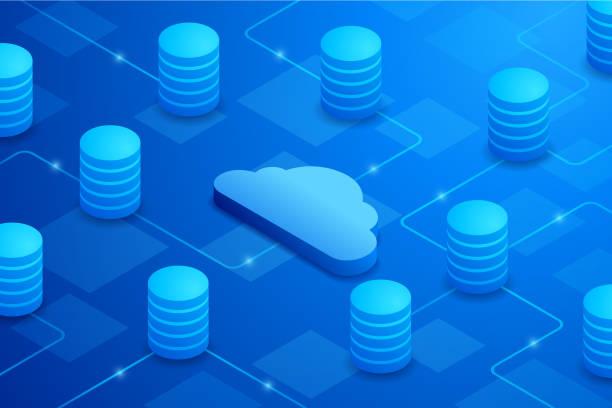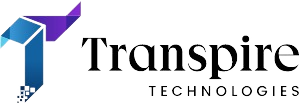Building machine learning models is just one aspect of being a data scientist; you also need to be able to process, analyze, and effectively convey your findings from data in a variety of forms. For many years, the conventional SQL database was the only sort of database used. However, a new data type—NoSQL databases—became well-known due to the internet’s astronomical popularity in the middle of the 1990s and the digital revolution. They were developed in reaction to traditional SQL databases’ shortcomings.
“NoSQL’s market size was valued at $2,410.5 million in 2018. Now it will reach $22.087 million by 2026. The growing rate is 31.4% at a CAGR from 2019 to 2026.”
Share To:
We’ll first develop your grasp of NoSQL databases in this conceptual blog (no coding is required) before delving into the significance of NoSQL. Additionally, we’ll contrast SQL and NoSQL databases and examine the latter’s applications and classifications. Finally, we’ll look at the most NoSQL databases that data scientists use.
An Overview of SQL & NoSQL Databases
SQL and NoSQL databases are two types of database management systems that store data differently. SQL is the most common type of database, and it’s used in most popular applications.
SQL stands for Structured Query Language. It’s a language that allows programmers to interact with a database by telling it what information they want and how to retrieve it. This is a process called querying, as you’ll see below.
NoSQL databases are newer than SQL databases, but they’re gaining popularity as more people realize their benefits over SQL databases. NoSQL stands for “not only SQL.” That name hints at one of the major differences between these two types of databases: how they store data.
SQL VS. NoSQL Databases: What’s the Difference?

SQL and NoSQL databases are two different types of databases that have other uses. SQL databases are generally used for transactional applications, while NoSQL databases are used for non-transactional applications.
Here are key differences for both:
| SQL Databases | NoSQL Databases |
| Relational database management system | Distributed Database management system |
| Vertically Scalable | Horizontally Scalable |
| Best for complex queries | Not good for complex queries |
| Fixed or predefined schema | Dynamic Schema |
| Not perfect for hierarchical data storage | Best suitable for hierarchical data storage |
Sql or NoSql Which is better for Big Data?
Every day, big data expands and becomes more disorganized. Today’s organizations, big and small, are being inundated with enormous volumes of varied and unstructured data flooding in at record-breaking speeds thanks to the Internet, social media, mobile devices, and other technologies. Let’s dig deep to know which database is better for handling big data issues.
Factors that Support SQL for Big Data Applications
The following factors support SQL for big data applications:
ACID Compliance: If you’re using a relational database management system (RDBMS), it should comply with the ACID properties — atomicity, consistency, isolation, and durability — ensuring transactions are processed correctly.
Enables Interaction: SQL enables interaction with your data sources by allowing you to write queries that return results from multiple tables at once. This process will enable users to quickly analyze large amounts of information without requiring them to understand how the database works or how to structure queries themselves.
Well-structured: SQL is an ideal language for processing unstructured and semi-structured data because it provides a standard way to access data from different sources in a single database environment. The queries can be crafted easily with SQL to perform complex tasks such as joins and aggregations.
Factors that Support NoSQL for Big Data Applications
“The scale to which databases must operate to manage Big Data explains the critical nature of NoSQL and, thus, why NoSQL is key for Big Data applications.”
Share To:
The NoSQL database has a complete set of features that can solve big data problems. The most common use cases for NoSQL are:
![]() Highly Available and Fault-tolerant: NoSQL databases are available 24/7, which makes them suitable for mission-critical applications, such as financial services, eCommerce businesses, and telecommunications providers who cannot afford downtime due to technical limitations or security breaches.
Highly Available and Fault-tolerant: NoSQL databases are available 24/7, which makes them suitable for mission-critical applications, such as financial services, eCommerce businesses, and telecommunications providers who cannot afford downtime due to technical limitations or security breaches.
![]() Cloud-based Storage: The cloud-based nature of most NoSQL databases helps ensure high availability because they offer disaster recovery options such as replication and backups.
Cloud-based Storage: The cloud-based nature of most NoSQL databases helps ensure high availability because they offer disaster recovery options such as replication and backups.
![]() Fast Development: The biggest advantage of using NoSQL is its fast development. With NoSQL, developers don’t have to worry about strict rules like SQL when designing applications. They can create flexible data models based on their business needs, allowing them to develop applications quickly without compromising performance or scalability.
Fast Development: The biggest advantage of using NoSQL is its fast development. With NoSQL, developers don’t have to worry about strict rules like SQL when designing applications. They can create flexible data models based on their business needs, allowing them to develop applications quickly without compromising performance or scalability.
NoSQL is the Future of Big Data
In the world of Big Data, a lot of companies are choosing to use NoSQL databases instead of SQL-based ones. But why?
The answer is simple – because they are better suited for large datasets.
In the ever-evolving digital world, data is generating more rapidly via social applications as they scale from zero to millions of users in a few months. This ever-growing data collection includes personal user information, location data, user-generated content, machine-log data, and sensor-generated data, to name a few.
Businesses are also using Big Data for mission-critical power applications. Because NoSQL databases are ideally suited for these new forms of data that are currently emerging, enterprises are universally moving to them.
NoSQL is rapidly becoming a viable alternative to relational databases, particularly for Big Data applications, as more businesses realize that scaling operations are best accomplished via clusters of common, commodity computers. Additionally, a schema-less data model is frequently more suitable for the variety and kind of data currently being recorded and processed.
Get the Best Solution For Your Business With Transpire Technologies!
Which database to employ is a crucial decision business pursuing big data initiatives must make, and this choice frequently comes down to SQL or NoSQL. Although NoSQL is gaining popularity and has a big installed base, SQL has an amazing track record.NoSQL ideas, technologies, and statistical methods have entered data science. It contributed to the development of new computational methods and algorithms.
Organizational leaders looking to adopt the best solution to handle data should exercise due diligence—assessing all pros and cons—in deciding whether SQL or NoSQL is the best solution for their organization’s current and future big data needs. If you need any consultation regarding this, contact Transpire Technologies today and get expert advice.





